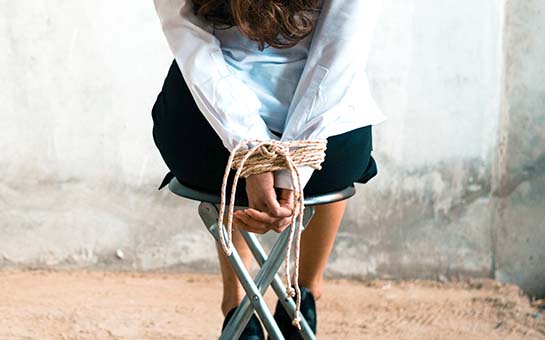Many people who have been watching the news recently are undoubtedly concerned about the possibility of encountering violence, or having a loved one kidnapped while traveling abroad.
And while it may seem like the world is becoming a more dangerous place, the truth is this is nothing new. An estimated 30,000 kidnappings happen each year across the world, and violence against tourists can occur in any nation, but often goes unreported. The best thing you can do is be a prepared traveler, and make smart choices while traveling outside your home country. Use the following tips as basic guidelines to make your travel plans safer.
Read Travel Advisories
Regardless of what country you’re from, the US State Department’s Travel Advisories are a great resource to help you ascertain whether or not it is safe to travel to an area. The State Department issues four levels of advisories, ranging from Level 1 (Exercise Normal Precautions) to Level 4 (Do Not Travel). If the area you’re planning to visit is at Level 3 or higher, you may want to reconsider your plans. If you are not from the US, there is a good chance that your government posts a similar list with information specific to citizens of your country.
Stick to Known Tourist Areas
Many resort and tourist towns have built-up areas designed specifically for visitors. These areas typically have increased security and extra police presence to protect tourists. These safety enhancements aren’t usually available in local neighborhoods and more rural areas. So, while you should feel encouraged to get out and explore, do so within reason. Avoid visiting or going through desolate or questionable areas whenever possible, especially at night.
Be Friendly, But Not Too Friendly
Of course you want to meet locals and experience a new country’s culture, but you have to keep your wits about you. If a stranger keeps asking you specific questions, be wary of the answers you give. For instance, if they ask you where you’re staying, be vague. Don’t give them the exact hotel name. Instead, say something nondescript like “by the airport.” Keep conversation light, and never include exact details about where you’re from, what you do for a living, or how much money you make. And if you ever begin to feel uncomfortable, politely excuse yourself from the conversation.
Watch Your Food and Drink
People with ill intentions are known to spike an unsuspecting victim’s drink when they aren’t looking. Once incapacitated from the drugged beverage, the criminals can easily rob them, or worse. To prevent this, never accept a drink from someone you don’t know, and never leave your drink unattended. If someone offers to buy you a drink and you accept, make sure you watch the bartender pour it, and have them hand it directly to you.
Write Down Your Embassy’s Contact Information
If your home country has an embassy or consulate in the country you’re visiting, write the information down and keep it in a secure location. If you experience any trouble abroad, the embassy or consulate can aid its citizens who are experiencing emergency situations. Typically, a consulate can assist you in navigating local law enforcement and medical systems, contact your next of kin or a loved one, and put you in contact with additional resources. They may even be able to assist you with evacuation if it is deemed necessary.
Purchase Appropriate Insurance
Travel Medical Insurance
If you get injured abroad due to criminal activity or any other covered reason, it is essential to have insurance coverage that can help pay for necessary treatment. Many travelers are unaware that the domestic health insurance from their home country is not likely to be accepted outside that country. If you get hurt or become sick and do not have travel medical insurance, you could be stuck paying the entire bill yourself. With travel medical insurance, you can get the treatment you need for a price you can predict.
In addition, many travel medical insurance plans offer benefits such as emergency medical evacuation, which can save you up to $250,000 if you need lifesaving transport to a different city or country. And should the worst happen, many plans cover repatriation of remains, which can help relieved loved ones from significant stress during their time of grief.
